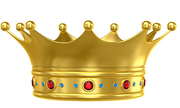
An absolute monarchy is a form of monarchy in which a single ruler has unrestricted and supreme authority. Typically, absolute monarchies are hereditary, with monarchs being succeeded by a chosen male family member, with almost every European monarchy choosing to pass the throne down to the oldest son (primogeniture). Nearly all monarchies were absolute until the Enlightenment era, with England being the first major constitutional monarchy in Europe after its adoption of the Magna Carta in 1215. James I of England developed the concept of "divine right", which claimed that God had chosen absolute rulers to do his work. However, the Enlightenment era would promote secularism and a contract between rulers and their peoples, and the works of John Locke challenged absolutism. By 1848, almost all of Europe's major monarchies had been forced to adopt constitutions, although the Austrian Empire and Russian Empire were notable exceptions. Absolutism declined throughout the course of the 19th century, with reactionary members of society often failing in their attempts to return society to a feudal one. By the 21st century, most absolute monarchies were located in the Arabian Peninsula and Asia, while Europe had gone through liberalization.
